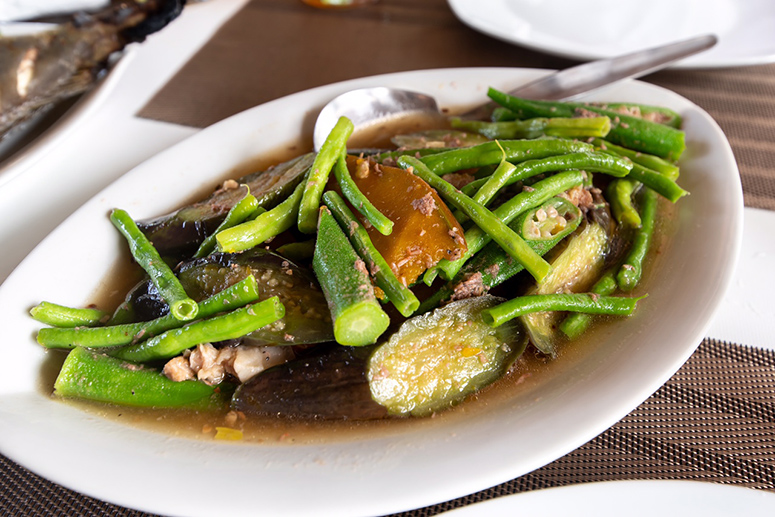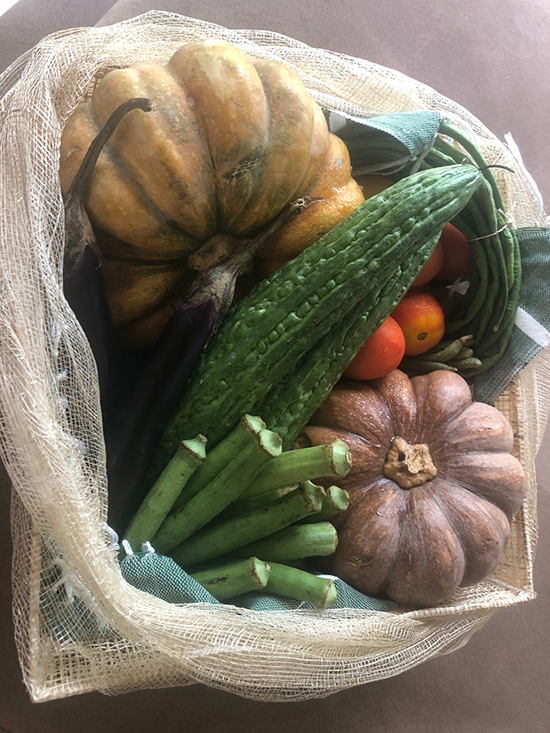Why not give a veggie basket this Christmas?
A quick poll might clearly show that the good habit most unhealthy individuals fail to practice is eating at least five servings of fruits and/or vegetables per day. A serving is half a cup of cooked vegetables, which is around 75 grams.
We normally send a basket of fruits as a gift. Why not a basket of colorful vegetables? Since receiving one, I cannot stop thinking that this is a great idea to promote incorporating veggies into one’s daily diet. It is also a great way to support local Filipino farmers.
An active group leading the campaign to increase vegetable consumption of Filipinos not only for better nutrition but also to increase the demand and, therefore, the livelihood of Filipino vegetable farmers is East-West Seed and its foundation, which envisions healthy Filipinos through increased appreciation, availability and consumption of vegetables, enabled by sharing knowledge about vegetable production and health benefits.
East-West Seed (EWS), one of the world’s leading vegetable seed companies in Asia, was founded in 1982 by Dutch seedsman and 2019 World Food Prize Laureate Simon Groot and Filipino seed trader Benito Domingo.
Its three R&D establishments in Batangas, Bukidnon and San Rafael, Bulacan, play an important role in the development and improvement of tropical vegetable varieties.
Recently, they launched a campaign to push pinakbet as a staple dish in the meal plan of every Filipino family. This nutritious viand originated from the northern regions of the country. Most cook the vegetable mix in fish sauce or shrimp paste but many variations have evolved.
EWS reminds us that a serving of pinakbet is a plate full of nutrition.
Every serving of pinakbet has at least seven types of vegetables. These are usually ampalaya, eggplant, okra, green beans, chili peppers, tomatoes, sweet potato and squash — all of which are good sources of different vitamins and minerals that our body needs to stay healthy.

Ampalaya contains many antioxidants and studies have found that it has medicinal properties that help reduce blood sugar. Eggplant supports the reduction of causes of heart disease. Green beans help to keep your digestive system healthy and running smoothly. Squash is high in beta-carotene, which our body turns into vitamin A that can strengthen our immune system and promote healthy eyesight.
The key ingredients in pinakbet are all easily accessible. It is recommended to make sure that when buying the ingredients, consumers choose good quality vegetables, so you really get the nutrients from it.
EWS has been developing improved vegetable seed varieties that help farmers improve their yields, reduce pesticide and water usage, and earn more from their work.
The vegetable seeds they offer were developed and bred here in the Philippines to ensure that they will thrive in local growing conditions. Their seeds can also be grown in anyone’s backyard or home garden.

For someone not born in the kitchen like me, pinakbet is also easy to cook and prepare.
First, sauté the onion, garlic and ginger in a pot with hot cooking oil. Then add pork or shrimp for flavor depending on preference. Add a touch of fish sauce or shrimp paste and continue to stir, add some water, and add in the vegetables. Cook until all ingredients are tender but make sure to not overcook the vegetables to retain its nutrients.
With vegetables as main ingredients, pinakbet is a dish that supports Filipino farmers.
When consumers purchase vegetables, they are not only providing their households with a healthy meal but are also helping and supporting the livelihood of Filipino farmers working hard to produce good quality vegetable crops.
So next time you fix a gift basket, try giving vegetables. Maybe it’s a basket of the seven veggies used in pinakbet or those used in chop suey (cauliflower, carrots, snow peas, cabbages, red bell pepper, green bell pepper, young corn). Just make sure you get the freshest vegetables from the farm.


